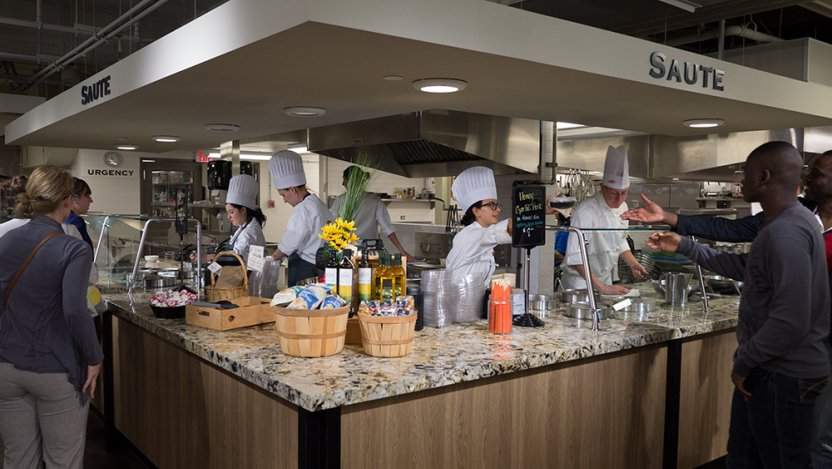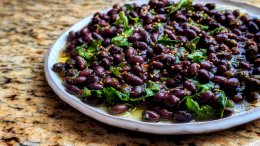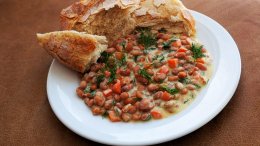We spend the first 20 years of our lives preparing for “the real world”. We learn the basics -- how to spell, how to add, how to get along with others. Along the way, we find people who guided us, teach us how to deal with life, mentor us and occasionally kick our asses to contain our hubris as we make the choices which would shape our lives.
After a few life lessons and a good number of ass kickings, some of us find our calling, passing accumulated wisdom from our experiences onto the next generation, in the hopes that others will avoid the pitfalls and surpass their limitations.
Hayato Okamitsu, with this fine dining background and his passion for education, chose the path of a mentor and educator after winning the coveted Gold Medal Plates in 2009. His goal is to educate in the traditional sense and also to teach lessons which could not be learned within the confines of a classroom. Part of his duty as an educator, Okamitsu says, is “[to help] someone understand how much time, passion, and hard work they must dedicate to a career in the kitchen to be successful.”
Historically, chefs were forged from the heat of the kitchen and the sneer of veteran chefs -- disciplined in an unofficial military, drilled by their seniors, hardened by repetitive tasks. Formal education was an option, but not absolutely necessary, as rookies could prove themselves through tenacity, a knife in hand and pan at their side, braving the horde of ravenous and unforgiving diners.
The development of modern chefs has taken a more balanced approach. A practical hands-on education is still required to set expectations and harden new recruits, but formal training is quickly becoming an important factor in nurturing talent and refining skills.
“That is why we have culinary schools,” Okamitsu notes. “Every budding chef should attend one, but I am always telling my students that there is no spoon-feeding style of education system in the real industry. Any knowledge students wish to learn in the industry, they must go seek themselves.”
In Southern Alberta Institute of Technology's (SAIT) culinary program, second year students are able to practice learned theories with its dinner program, under the supervision and guidance of senior instructors. Students, even those without fine dining or previous restaurant experience, are placed in a live dinner service for paying customers in a booked out dining room, allowing them to deal with real world situations and test their mettle while still receiving the support of their mentors.
Beyond the basics, each individual excels and demonstrates their passion in their own manner. Balancing this duality between technique and flair is the strength of a mentor like Okamitsu, who shares his experiences from his fine dining background.
“My goal is always to give them as much information as I can about working in the food industry and help them understand and adapt to working systems within a fine dining kitchen,” says Okamitsu, when asked about setting goals each semester. “I make a point to chat with each student to find out what aspects of cooking are interesting to them. Once I know what they're passionate about, I incorporate what I can into my class.”
There is no set formula for the development of a great chef. The exalted verbal lashings of Eugénie Brazier shaped the development of Jean and Pierre Troisgros and Paul Bocuse. Yet, chefs like Grant Achatz and Todd English chose a more formal route. Perhaps, the making of a truly great chef lies somewhere between a few good books in the classroom and a few hard knocks in the real world.













